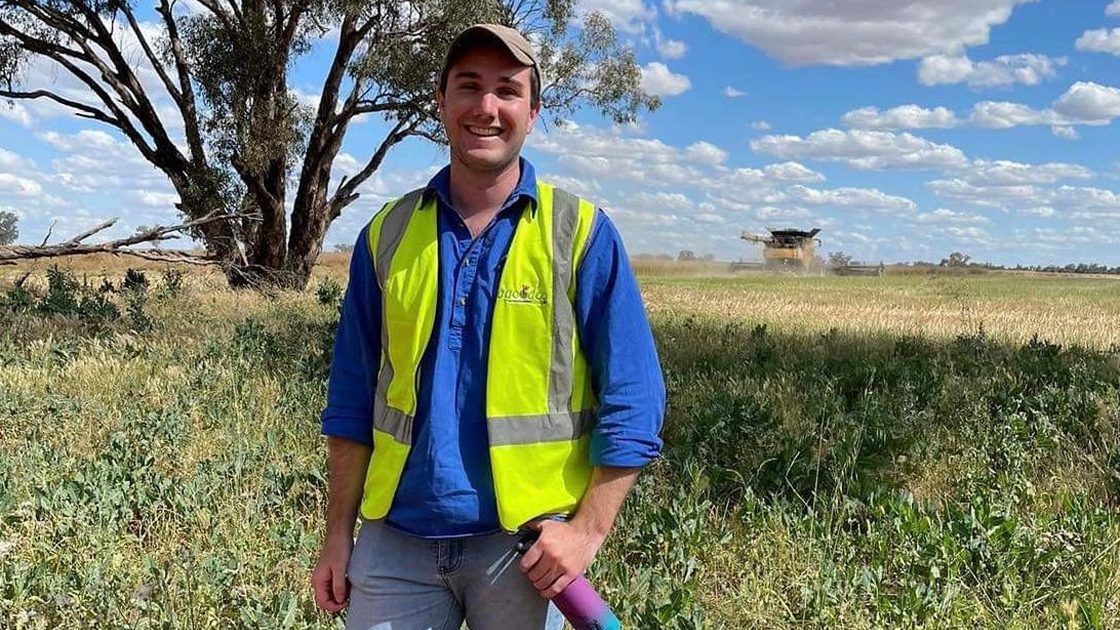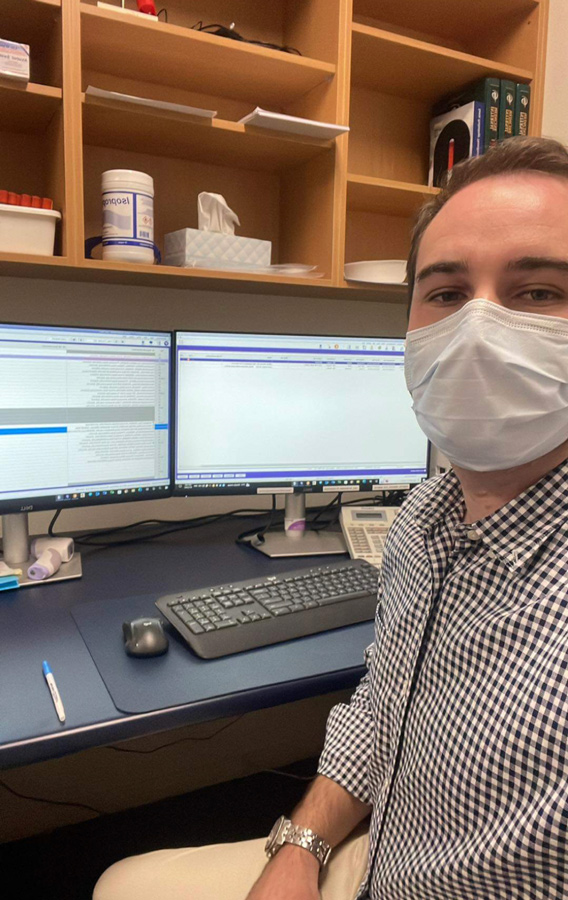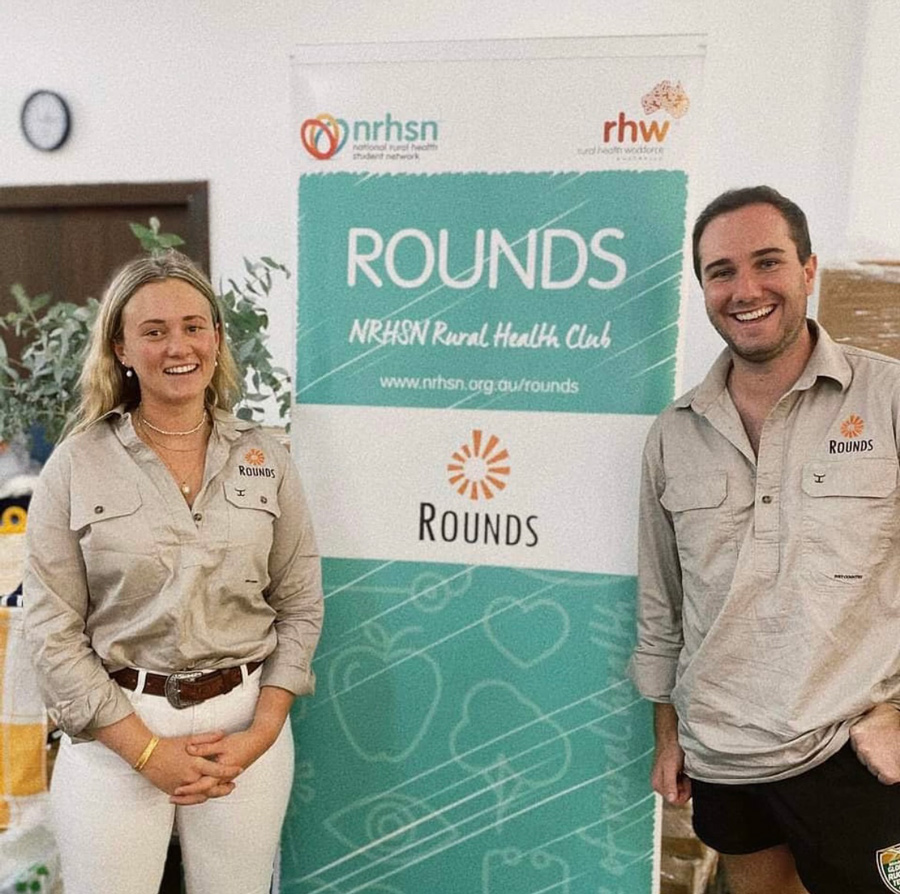“The famous quote ‘If you aren’t in over your head, how do you know how tall you are?’, coined by writer T.S. Eliot, is one that has echoed within me throughout my entire life,” says Harrison Hamblin, a second-year medical student at the University of Notre Dame in Sydney.
Born and bred in the rural New South Wales town of Young, Harrison is passionate about a career in rural general practice, not only fuelled by his ambition to improve the lives of fellow rural Australians but equally driven by the opportunities he believes it provides for personal growth.
“Since I can remember, I have always been up for a challenge, as it is within these difficult circumstances that I find the most amount of growth,” he explains.
“Living in rural Australia has taught me that life in the bush is associated with many unique challenges.
“Mother Nature is one such challenge that frequently devastates entire rural communities, leading to increased rates of depression and anxiety.
“As rural healthcare professionals within these close-knit communities, we too can bear the burden of these natural phenomena.
“While the sanctity that big cities provide from these volatile events is attractive, since living in Sydney I have discovered that a lack of connection with nature and the land is more damaging to oneself than natural disasters can ever be.
“Interacting with members of my local community of Young after I began my medical degree has established how desperate these individuals are for a general practitioner they can trust.
”These experiences have strengthened my desire to pursue my studies and to practise in rural Australia.
“I believe that a career in rural general practice will not only result in an increased work-life balance, but also provide both myself and the family I intend to raise a lifetime of personal growth through exposure to the many hardships facing everyday Australians.”
Harrison’s journey into medicine is quite atypical when compared to his peers.
Throughout high school, he had little to no interest in completing a tertiary degree and instead was more interested in pursuing a trade such as construction.
Eventually, it was Harrison’s mother who encouraged him to look into university degrees and, based on his interest in sciences at school, he applied and was accepted into a Bachelor of Medical Science at the University of New South Wales (UNSW) in 2015.
“I soon found out that the majority of students undertaking this degree had interests in transferring to medicine, which is where my initial exposure to the career came from,” he said.
Harrison’s interest in medicine evolved after he graduated from UNSW in 2018 and began work as a researcher in a Sydney-based private gastroenterology clinic.
“It was here that I was exposed to the field of medicine and learnt about how physicians can be involved in both the management of people’s healthcare and research initiatives at the same time,” he said.
“I thought this sounded like a great way to give back to rural Australia which was so instrumental in my upbringing.”
Harrison strongly believes that rural physicians bear an increased responsibility when compared to their metropolitan counterparts, particularly within the specialty of general practice, where rural Australians are limited to who they receive their primary care from.
“To adequately service such communities, rural physicians must gain the trust of the entire community which naturally encompasses a wide range of individuals.
“Through my experiences growing up in rural NSW, I observed that building such trust is largely achieved through active participation within the local community outside the consultation room.
“I have learnt the benefit of gaining this trust is that community members develop a greater willingness to attend regular GP consultations and, in regions where tertiary care is often 500km away, primary prevention of disease is paramount.
“Therefore, it is through rural healthcare professionals that the rural workforce remains healthy and prosperous, forming the foundation for continual growth in rural and regional Australia.”
Harrison praises the support he has received from both the General Practice Students Network (GPSN) and his fellow students during his medical journey to date.
“One challenge that comes to mind is how I have felt quite different to the other students studying medicine, and as a result, I often wondered whether I was in the right place,” he said.
“I found myself not particularly getting bogged down with the stressors and rigours of medicine, and instead focused on my life outside of uni.
“Seeing other students commit to regimented study routines and focus on small detail made me question whether I was taking the degree seriously.
“Talking about these feelings with current practising medical professionals has helped ease my anxiety and ensured my relaxed, open-minded approach to medicine is one of many ways one can go about it.
“Throughout my first two years of medical school, GPSN has also been involved in setting up many speaker nights with rural and metro GPs which have been valuable in establishing tangible career pathways for students like myself.
“I find speaking and listening to professionals the best way to navigate the many options for medical careers, aiding in reducing the associated stress.”
So, where does Harrison see himself in 10 years’ time?
“From a professional viewpoint, my career goals within the field of medicine are strongly focused on improving the health outcomes of both rural and Indigenous Australians,” he said.
“It is my belief that this can be achieved in two ways. Firstly, with fewer resources, and an increased rate of disease, rural healthcare professionals and healthcare facilities are under a constant and increasing load.
“As a second-year medical student and aspiring physician, I perceive myself as one such resource, who can not only directly fill a void, but also encourage and empower fellow rural and metropolitan students to also consider a career in rural health.”
In his current role as chair of the Rural Health Club at Notre Dame (ROUNDS), Harrison is planning to host an inaugural virtual high school panel discussion with healthcare professionals from a range of disciplines for students across rural NSW who are interested in pursuing health careers.
“My hope is that this initiative will soon reach students all over NSW to give them the courage and mentorship to enter healthcare professions,” he said.
“In addition to increasing the size of the rural health workforce, I believe that improving rural Australians’ health through primary prevention strategies can also help ease the burden on rural health facilities.
“A major career goal of mine is to implement tangible daily health improvement strategies, such as exercise and dietary programs, to instil both a meaningful and lasting impact on the overall health outcomes of rural and Indigenous Australians.”
For Harrison, it is all about personal growth and challenging himself for the greater good of other Australians.






